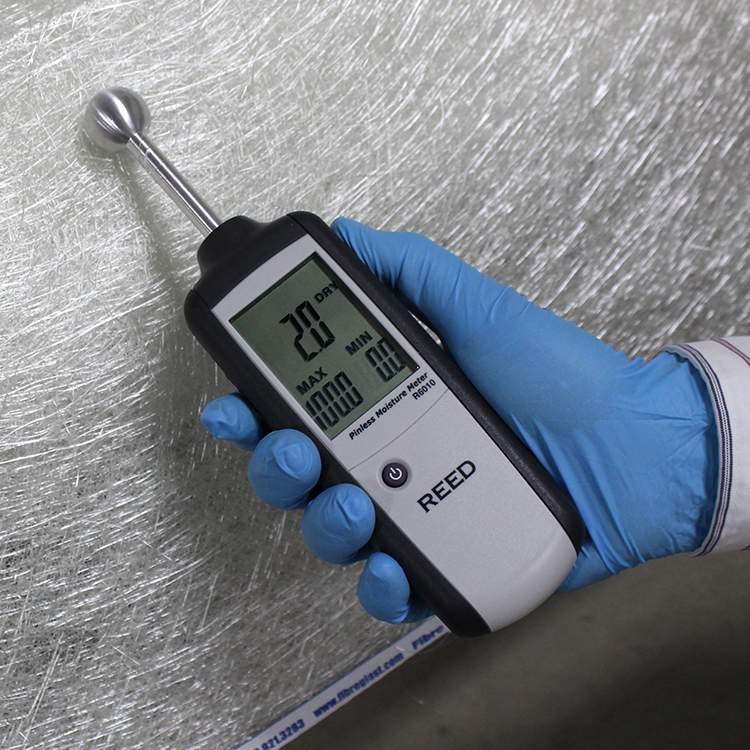Moisture Meter Buying Guide: What to Look for in High-Quality Instruments
Moisture Meter Buying Guide: What to Look for in High-Quality Instruments
Blog Article
The Ultimate Overview to Moisture Meters: A Comprehensive Introduction and Exactly How They Can Save You Money
In the realm of structure upkeep, building, and various industries, the importance of accurately measuring moisture degrees can not be overemphasized. Wetness meters act as indispensable tools in detecting and monitoring moisture content in materials, assisting in stopping expensive damages and making certain the high quality of products. Recognizing the subtleties of different sorts of dampness meters, their applications, and the prospective cost-saving benefits they supply can be a game-changer for services and professionals alike. Finding exactly how these tools can not only streamline procedures but likewise contribute to monetary savings is a journey worth starting.
Kinds Of Moisture Meters
Various kinds of dampness meters are available for various applications in various markets. One usual type is the pin-type dampness meter, which measures the electrical resistance in between 2 pins placed right into a material. This kind is suitable for wood, drywall, and various other structure materials. Pinless wetness meters, on the various other hand, use electromagnetic sensing unit plates to check a bigger area without triggering damages to the material's surface. These meters are excellent for rapidly examining dampness levels in big locations such as walls and floors.
Moreover, there are likewise specialized moisture meters created for details materials like dirt, hay, or grain. These meters offer precise wetness analyses customized to the unique buildings of the material being tested. Infrared moisture meters measure the thermal residential properties of a product to establish its dampness content non-invasively, making them useful for applications where pin or pinless meters may not be ideal. Understanding the different kinds of dampness meters readily available can aid sectors select the most suitable tool for their specific dampness dimension requirements.

Benefits of Using Moisture Meters

Furthermore, utilizing wetness meters can bring about increased energy effectiveness. By determining locations with high dampness degrees, such as leaks or poor insulation, modifications can be made to boost energy conservation and minimize energy costs. In agricultural setups, dampness meters play an important duty in optimizing plant returns by making it possible for farmers to keep track of soil wetness levels and make notified watering choices. Generally, the advantages of making use of dampness meters extend across various sectors, giving affordable services and advertising better high quality control techniques.
How to Choose the Right Moisture Meter
Selecting the suitable moisture meter entails taking into consideration crucial aspects such as product compatibility, dimension range, and calibration accuracy. When picking a dampness meter, it's important to make certain that the meter appropriates for the details product you will certainly be screening. Various products have varying electric buildings that can impact moisture analyses, so selecting a meter created for your material is critical for precise outcomes. Furthermore, take into consideration the measurement array of the wetness meter. Ensure that the meter can find link wetness degrees within the range needed for your applications. Calibration accuracy is another essential aspect to bear in mind (Moisture Meter). Go with a dampness meter with trusted calibration to make sure precise and constant analyses. Some meters may call for routine calibration modifications, so understanding the calibration procedure is very important. By meticulously examining these variables, you can choose a wetness meter that fulfills your demands and offers precise dampness dimensions for your projects.
Appropriate Methods for Moisture Meter Use
To guarantee accurate dampness readings and optimize the efficiency of a moisture meter, using appropriate techniques is crucial. When utilizing a pin-type wetness meter, put the pins or probes into the material being checked until they make complete get in touch with. By following these correct techniques, individuals can count on their dampness meter to give reliable moisture degrees, aiding in stopping pricey damage or making certain high quality in numerous applications.

Expense Cost Savings Through Moisture Meter Applications
How can the tactical use of dampness meters lead to significant cost savings across different markets? In the farming sector, dampness meters help in establishing the optimal time for harvesting plants, protecting against over-drying or excess moisture that can impact the final product's quality.

Furthermore, in the food processing industry, wetness meters are essential for keeping track of product quality and guaranteeing compliance with safety regulations. By accurately measuring moisture web content in food items, suppliers can protect against perishing, preserve freshness, and decrease waste, resulting in significant price financial savings. Generally, the tactical application of moisture meters is a valuable financial investment that can bring about considerable cost reductions read and boosted effectiveness across various sectors.
Final Thought
In final thought, moisture meters are useful devices for determining and identifying wetness degrees in various products. By making use of the ideal moisture meter and adhering to proper methods, customers can efficiently protect against costly problems created by excess wetness.
Wetness meters serve as essential tools in finding and monitoring moisture material in products, helping in protecting against costly damages and guaranteeing the top quality of items. Infrared dampness meters gauge the thermal residential properties of a product to establish its dampness content non-invasively, making them pop over to this web-site useful for applications where pin or pinless meters may not be suitable.Wetness meters provide vital benefits in precisely analyzing and checking dampness degrees in varied products and atmospheres. In agricultural settings, moisture meters play an essential role in optimizing crop returns by making it possible for farmers to check dirt wetness levels and make informed irrigation decisions.In verdict, wetness meters are valuable devices for identifying and determining moisture degrees in numerous products.
Report this page